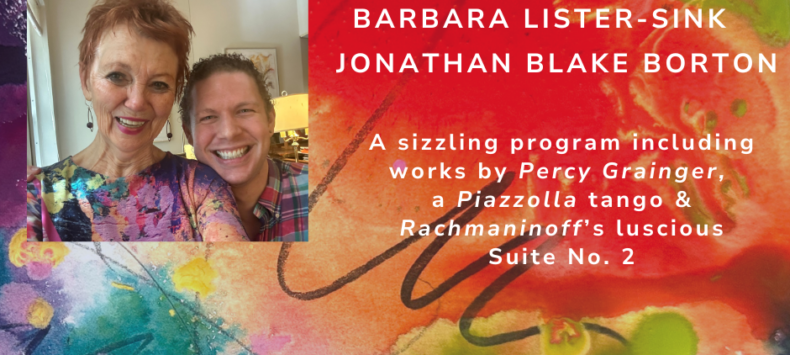
Arts at Salem: Piano duo performs March 22 in Fine Arts Center
LIQUID FIRE! piano duo with Barbara Lister-Sink, EdD and Jonathan Blake Borton will present a thrilling concert SUNDAY, MARCH 23, 2025 at 4:00 p.m. in Shirley Recital Hall in the Elberson Fine Arts Center of Salem College. ADMISSION IS FREE and parking is very convenient.
The program contains music everyone will love, including gorgeous arrangements of tunes by the eccentric Australian composer Percy Grainger (who performed the Grieg Concerto with the Winston-Salem Symphony in Reynolds Auditorium about 100 years ago!), an arrangement of a riveting Piazzolla Argentine Tango, and the beloved Suite No. 2 by Rachmaninoff.
Barbara said, “Jonathan and I are having such fun rehearsing for this concert. We know you would enjoy it and would love to see you there!”
Barbara Lister-Sink, EdD is the professor of piano at Salem. She is also an internationally-acclaimed pianist and she has performed with the Harvard Chamber Players, the Rochester Society for Chamber Music and at the New Hampshire, Skaneateles, Brevard and Chautauqua summer music festivals.
Jonathan Blake Both is a staff pianist and accompanist at Salem.
